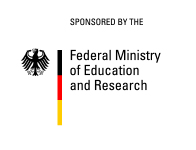Time: Monday, 5 September 2016, 09:00 – 17:00h
Venue: Seminar Room 5.104, Im Neuenheimer Feld 205, Mathematikon
No fees: Attendance of the scientific program is without costs.
Objective and Scope
The main objective of this public workshop is to bring together experts from Geosciences and 3D Earth observation / Geomatics, from academia and industry, as well as from Europe and Asia. The specific thematic focus is the development of automatic methods to extract geoinformation for improved management of forests and natural hazards in Asia and Europe. Multiple sources of 3D remote sensing data (e.g., LiDAR, photogrammetry; mobile mapping on ground and with drones) and methods to integrate these data will be presented by international experts from universities in Germany and Taiwan, and from leading companies for 3D data acquisition.
Detailed Program (PDF)
09.00-09.15 Opening by Dean Prof. Linti and Jun.-Prof. Höfle
09.15-10.00 The General Geology and Natural Hazards of Taiwan (Prof. Wu, NCKU)
10.00-10.45 LiDAR Investigation of Landslide and Forests in Taiwan (Prof. Wang, NCKU)
10.45-11.15 Coffee/Tea Break (Common Room Mathematikon 5/303)
11.15-12.00 New LiDAR Monitoring Paradigm of Natural Hazards and Forests (JProf. Höfle, Heidelberg)
12.00-14.00 Lunch Break (Mensa: Directions: http://tinyurl.com/3dtaiger)
14.00-14.45 An Overview on Unmanned Aerial Photogrammetry and Applications (Seitz, Heidelberg)
14.45-15.45 Mobile Mapping in Rough Terrain (Prof. Nüchter, Würzburg)
15.45-16.00 Coffee/Tea Break (Common Room Mathematikon 5/303)
16.00-17.00 UAV-based and Multispectral LiDAR Sensors (Dr. Pfennigbauer, Riegl)
17.45-19.30 Guided Tour in Old Town of Heidelberg (Meeting at Old University, Löwenbrunnen)
19.30- Dinner in in Old Town of Heidelberg, Brauhaus Vetter (by invitation only!)
This workshops is a central part of the 3-day Summer School of the 3D-TAIGER international research collaboration between the Institute of Geography of the Heidelberg University (HU) and the Department of Geomatics and Department of Earth Sciences of the National Cheng Kung University (NCKU) in Taiwan.
The project 3D-TAIGER is sponsored by DAAD with funding from BMBF.




